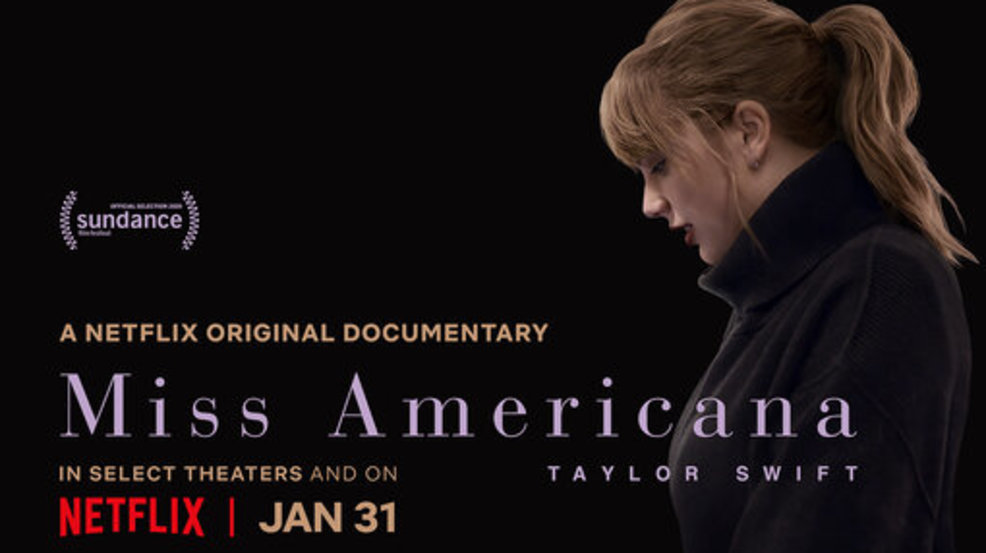By: Alyson Peabody, Editor-in-Chief
Taylor Swift opened up in her documentary Miss Americana about her reluctance to speak up about her political views.
Swift broke her longstanding silence on politics during the 2018 midterm elections. Marsha Backburn, a self-proclaimed “hard-core conservative” was running to become Tennessee’s first female senator. Blackburn opposes gay rights and protective rights for women who are victims of domestic violence. She voted against equal pay for women and voted against the reauthorization of the Violence Against Women Act, which strives to protect women from domestic violence, stalking, and date rape.
Swift posted a lengthy letter to her Instagram followers in 2018, stating: “I cannot vote for someone who will not be willing to fight for dignity for ALL Americans, no matter their skin color, gender or who they love… As much as I have in the past and would like to continue voting for women in office, I cannot support Marsha Blackburn. Her voting record in Congress appalls and terrifies me…. These are not MY Tennessee values.”
Charlie Kirk, president of conservative group Turning Point USA, responded to Swift in a tweet: “You just endorsed a Democrat in the Tennessee Senate race with a ridiculous statement saying Marsha Blackburn, a woman, is against women. You have absolutely no idea what you are talking about.”
Later, Trump told reporters: “Marsha Blackburn is doing a very good job in Tennessee. She’s leading now substantially, which she should. She’s a tremendous woman. I’m sure Taylor Swift doesn’t know anything about her. Let’s say that I like Taylor’s music about 25% less now, OK?”
Swift’s reluctance to speak up came from a place many women, including myself, have been conditioned to be afraid of. When women speak up they will be subject to criticism for who they are as people, not for their ideas. There is a very real feeling that we need to shed femininity to be taken seriously, but to do that is unladylike. It’s not palatable to be loud or to make people uncomfortable. To avoid making other people uncomfortable women are told to be ‘good girls.’
“I want to wear pink and tell you how I feel about politics. And I don’t think that those things have to cancel each other out,” Swift said. I relate to this sentiment as a woman who loves wearing dresses and defending freedom of the press. My ability to articulate my thoughts is due to my intellect and growing understanding of the world, not the color of my lipstick.
There are countless women deconstructing centuries worth of societal misogyny to find their voices in an effort to redefine what femininity means to them. Those women are everywhere from our Supreme Court to our classrooms.
I found this documentary to be an earnest account of the hoops women jump through for their voices to be not only heard but to be taken seriously.
I grew up watching the progression of Swift’s career from country music icon to pop star. No matter what your opinion may be on her music, one has to admire her courage to open up about the ways trying to be a ‘good girl’ shaped her career. Trying to not make waves for validation that she was ‘doing the right thing’ led her to struggle with an eating disorder, a reality that hits close to home for 20 million women in the U.S.
“A nice girl smiles and waves and says thank you,” she said in Miss Americana. “A nice girl doesn’t make people feel uncomfortable with her views.”
During the beginning of her career, Swift was warned not to be like the Dixie Chicks. In 2003, the Dixie Chicks condemned President Bush for the U.S. involvement in the war in Iraq. “Just so you know, we’re on the good side with y’all,” said singer Natalie Maines. “We do not want this war, this violence. And we’re ashamed the President of the United States is from Texas.”
The women were immediately heavily criticized. Death threats were made against Maines in Dallas that led police to escort the band to and from their show on July 6, 2003.
Having an opinion wasn’t ladylike, and Swift was discouraged from going down the same path as the Dixie Chicks.
Once you stop being a ‘good girl,’ you realize that the way you were being treated was contingent on your submission.
Being a woman, especially a woman in entertainment, comes with harsh scrutiny toward every aspect of your being. Swift explained the inequity between male and female entertainers for both age disparity and need for reinvention. Female performers must reinvent their presence more frequently than male performers, according to Swift, to remain palatable to their audience. Women also have a clock ticking on their careers where they are “discarded in an elephant graveyard by the time they’re 35.”
It doesn’t matter if you’re 18 or 35 or 82, your age and sex do not hinder your intellect. There is nothing wrong with being a ‘good girl’ if that is your choice, but there is something wrong with feeling like you have to be good, or else there will be consequences.

